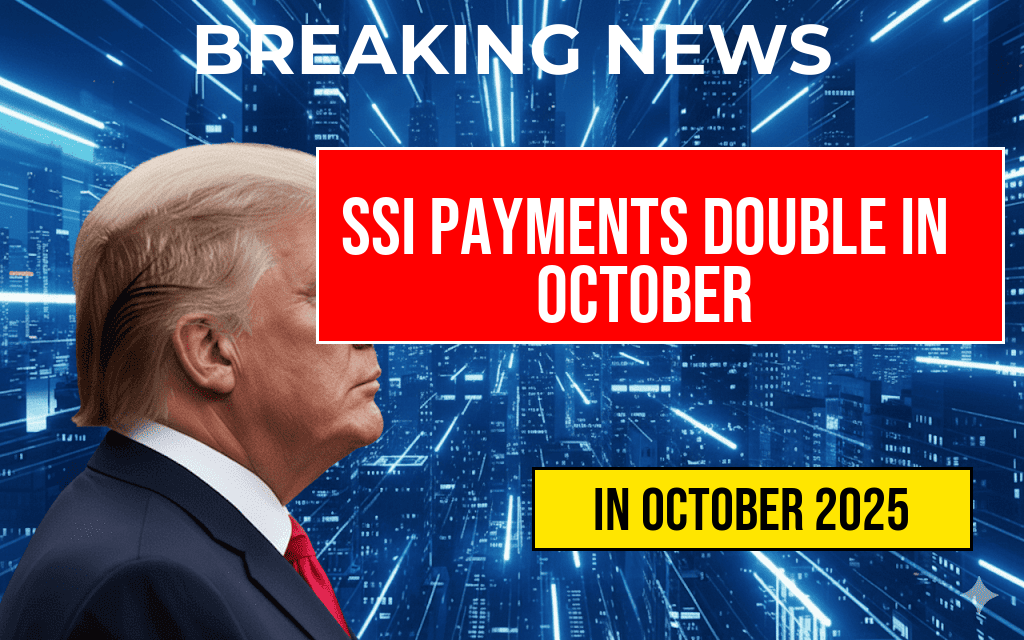Social Security recipients are set to receive a rare occurrence of two Supplemental Security Income (SSI) payments in October, marking a significant deviation from the typical monthly disbursement schedule. The Social Security Administration (SSA) announced that beneficiaries will see two separate payments, one at the start of the month and a second later, due to the way payments are scheduled around federal holidays and weekends. This adjustment aims to ensure that recipients receive their benefits without interruption during the holiday season, but it may also cause confusion among beneficiaries unfamiliar with the schedule changes. The first payment will be issued on October 3, 2023, with the second following on October 31, 2023. This occurrence underscores the SSA’s efforts to align benefit payments with calendar anomalies, providing timely support to vulnerable populations while highlighting the importance of understanding federal payment schedules.
Understanding the October Payment Schedule
Why are there two payments in October?
The SSA typically disburses SSI benefits on the first of each month. However, when the scheduled payment date falls on a weekend or federal holiday, the payment is generally made earlier—often the last working day before the holiday or weekend. In October 2023, the first payment is scheduled for October 3, which is a Tuesday, aligning with the regular schedule. The second payment on October 31 is also standard, but because this date falls on a Tuesday, the second disbursement is scheduled to ensure beneficiaries receive their benefits without delay during the month’s holiday period. This adjustment is consistent with SSA policies aimed at preventing benefit delays caused by banking holidays or weekends.
Historical context of double SSI payments
Receiving two SSI payments in one month is an uncommon event, occurring primarily when the regular payment date coincides with a weekend or holiday, or due to administrative adjustments. Historically, the SSA has occasionally issued double payments during holiday periods or when an initial payment is delayed. These occurrences are generally well-communicated to beneficiaries, but some may experience confusion or concern over the extra payment. The SSA emphasizes that recipients do not need to take any action and that these payments are legitimate and part of their regular benefit schedule.
Impact on Beneficiaries and Financial Planning
Managing the two payments
- Budgeting considerations: Beneficiaries should plan their expenses around these payments, especially since two disbursements may lead to larger-than-normal balances in their bank accounts.
- Bank processing times: Some banks may take longer to process the second payment, so beneficiaries are advised to verify receipt of their funds.
- Potential for confusion: Extra payments can sometimes cause misunderstandings, leading beneficiaries to question whether they are receiving an overpayment or duplicate benefits.
Resources for beneficiaries
The SSA provides guidance for recipients on how to manage multiple payments and address any concerns. Beneficiaries are encouraged to review their payment statements and contact SSA directly if discrepancies occur. Additionally, the [SSA’s official website](https://www.ssa.gov) offers detailed information on benefit schedules and payment policies, helping recipients stay informed about any changes.
Additional Considerations and Future Outlook
Upcoming schedules and possible adjustments
While October’s double SSI payments are scheduled in advance, beneficiaries should remain attentive to future payment calendars, especially around federal holidays or legislative changes that could alter disbursement patterns. The SSA periodically reviews and updates its payment policies to streamline disbursements and prevent delays, particularly as the program adjusts to inflation and increased beneficiary numbers.
Legislative factors influencing benefits
Congress periodically considers adjustments to Social Security and SSI benefits, including cost-of-living increases and policy reforms. These legislative proposals can impact payment schedules and amounts, emphasizing the importance for beneficiaries to stay informed through official sources such as the [Congress.gov](https://www.congress.gov) website for updates on legislative activity.
Summary of October SSI Payment Dates
| Payment Number | Date | Notes |
|---|---|---|
| 1 | October 3, 2023 | Regular scheduled payment |
| 2 | October 31, 2023 | Second payment, scheduled to avoid holiday delays |
As the SSA continues to adapt its payment procedures to accommodate the calendar, beneficiaries are encouraged to review their benefit statements and consult official resources for clarity. The occurrence of two SSI payments in October provides an opportunity for recipients to manage their finances proactively and stay informed about how federal payment schedules can affect their benefits.
Frequently Asked Questions
What is the reason for Social Security disbursing two SSI payments in October?
The Social Security Administration will issue two Supplemental Security Income (SSI) payments in October to ensure beneficiaries receive their full benefits for the month, often due to payment schedule adjustments or overlaps with other disbursements.
When will the two SSI payments be disbursed in October?
The first payment is typically made at the beginning of October, with the second payment scheduled later in the month, usually around mid-October, to cover the full period.
Who will receive two SSI payments in October?
SSI recipients who qualify for benefits and are affected by the payment schedule changes or adjustments will receive the two payments during October.
Will receiving two SSI payments affect my other benefits or taxes?
Receiving two SSI payments in a month generally does not affect your other benefits or taxes, but beneficiaries should review their individual situations or consult with a financial advisor for personalized advice.
What should I do if I do not receive both payments in October?
If you do not receive both SSI payments as scheduled, you should contact the Social Security Administration promptly to report the issue and get assistance in resolving the matter.










